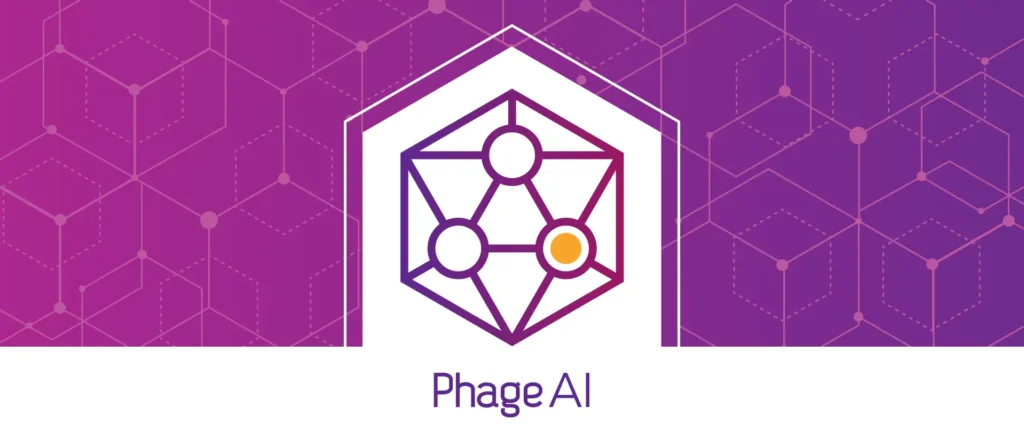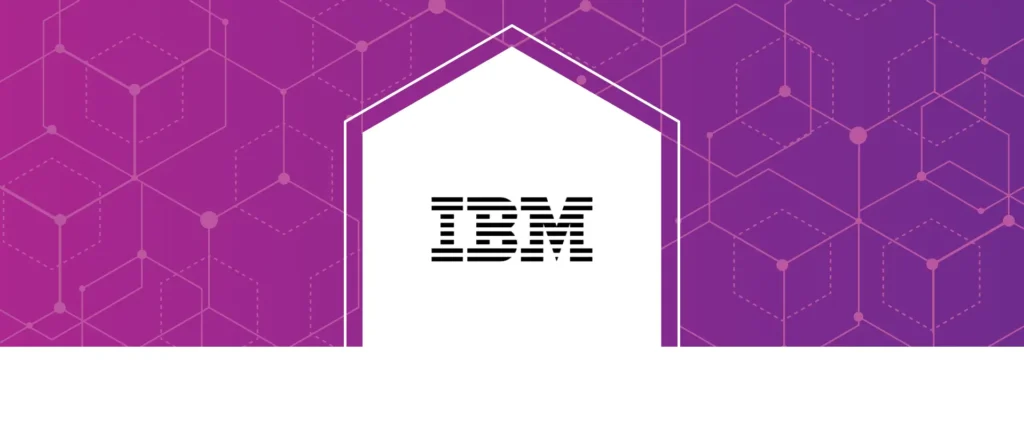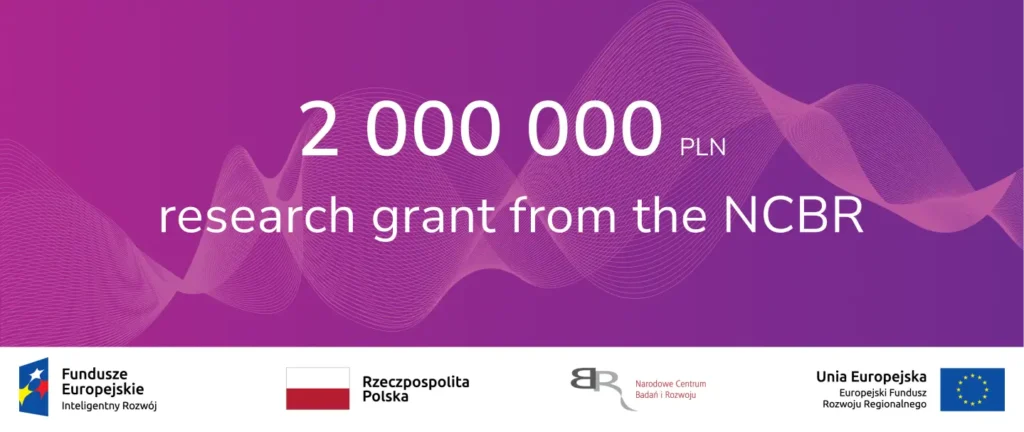New improved models available on our platform

We are making changes to improve our models! We developed new models for life cycle and taxonomy which are based on phage proteins. To keep consistency in the database, we will recalculate all classifications based on new models. We encourage you to take a look at the new classification! If you don’t remember your previous classification don’t be afraid! You will find this on the History page where we store information about your phage. In addition, we’ve prepared a short questionnaire and would greatly appreciate your participation. Your feedback will help us better understand your needs and guide us in developing new tools to enhance the potential of PhageAI!
Turning vision into impact with AI

Just back from this great event in Paris. The presentations and discussions with Microsoft experts and some of its partners were truly inspiring. One key take-away: “AI is everywhere”. However, there was no showcase about AI in R&D. That highlights how crucial our work is and makes our journey even more exciting.
Animal Health, Nutrition & Technology innovation Europe 2024 Summit

We are glad to announce that our Chief Executive Officer, Bruno Maineult, will be attending Animal Health, Nutrition and Technology Innovation Europe 2024, the ultimate platform for the most cutting-edge companies. Join him and 700+ other innovators in shaping the future of Artificial Intelligence (#AI) in #AnimalHealth and environment: https://lnkd.in/dNMckY5V
NCBR scientific grant progress report

PhageAI S.A. would like to share more details about the progress of the on-going scientific grant from The National Centre for Research and Development (NCBR). In 2022 we started a new research and development project of an AI-based screening platform for bacteriophages. In May 2023, we managed to complete the first three out of five planned stages. The NCBR grant is continuing till the end of 2023. Phage global database In the first stage, we have built the PhageAI External Data Acquisition (EDA) global database of bacteriophages including omics data which covers 18,179 high-quality phage and 10,152,477 amino acids sequences (access: 11.06.2023). We implemented a set of algorithms for searching, crawling and indexing the data, executing the gene prediction pipelines as well as a custom method to score the quality of samples and share them for further research. The global database is growing every week by dozens of phage and protein samples. Then, we trained and fine-tuned a set of Natural Language Processing (NLP) models using a global database of bacteriophages dedicated to solve down-stream tasks in phage biology. Different architectures of language models (e.g. transformers) were benchmarked depending on the data format and type of task (genome or proteins-based). The most accurate models were identified as Phage2Vec – scalable cloud-based technology for phage data vectorization – and included in the PhageAI pipeline what allows us to transform samples into multidimensional vectors and to deliver the knowledge in expected format by Machine Learning methods. Phage taxonomy classification In the second stage, we extended our knowledge of the current taxonomy of bacteriophages handled by ICTV. At that time (VMR 21), it covered 9 orders, 50 families and 1 652 genus of phages. We designed and implemented domain criteria of selection for phage samples for AI-based taxonomy classification research. It allows us to prepare train, test and validation sets and use vectorized versions of phage data delivered by Phage2Vec. As a next step, we have worked on a prediction model where the final version supports 7 orders, 31 families and 409 genera. After 5-fold cross-validation best classification algorithms achieved F1-score: We have also tested hierarchical classification algorithms for phage taxonomy prediction as an alternative solution for this down-stream task. Phage structural proteins classification In the third stage, we have focused on protein classification of phages, especially 10 classes of structural proteins. Manually curated dataset was prepared and covered by 8,931,173 samples in the train set and 1,221,304 in the test set. Both also included phage proteins with unknown function. The best Machine Learning prediction model was able to achieve 98,86% F1-score on the test set. Furthermore, we implemented a pipeline for phage protein exploration in 2D interactive space. It was used to benchmark how different language models are able to create acurate phage protein projections and affect the clusters represented by structural and unknown protein classes. Both, phage taxonomy classification and phage structural proteins classification were included in the PhageAI platform pipelines. Currently, we are focusing on the visualization of phage annotation results and preparing a new technology to find the most similar phages, as well as to highlight those with application (therapeutic) potential. All the results will be available via PDF report possible to be generated directly from the PhageAI platform. POIR.01.01.01-00-0763/21 Measure 1.1 R&D projects of enterprises, Sub-measure 1.1.1 Industrial research and development work implemented by enterprises, Smart Growth Operational Programme 2014-2020
We joined the OVHcloud startup accelerator program

PhageAI S.A. is thrilled to announce a new cooperation with OVH via OVHcloud startup accelerator program. OVHcloud Startup Program helps young companies to scale-up and to grow. OVH mission is to provide the best possible IT configurations, to accelerate the growth. They support and advise start-ups in their infrastructure development. The program will help us in the next 12-months to build-up the PhageAI technology in the cloud, to adjust the storage performance and to process all types of biological data even more efficiently than before.
PhageAI joined IBM Accelerator for startups

PhageAI S.A. is privileged to announce a new cooperation with IBM by joining the Startup with IBM program. The program is designed to help start-ups overcome the most common technology roadblocks and reach the market faster. The idea is to realize goals on your terms in the shortest amount of time and with the right technology partner. The program is open to early-stage health tech and fintech startups which are pre-Series A, less than five years old and have below $1 million in revenue. While in this program, PhageAI will be able to use Big Data Infrastructure by accessing IBM Cloud Technology and mentoring from cloud experts. This will allow us to boost AI research and scale up the PhageAI platform via cloud native stack, putting our mission and business on the path to phage research and therapy transformation.
Meet us on MedMeetsTech 2022

We are happy to inform you that PhageAI S.A. will be a part of the MedMeetsTech 2022 conference in Warsaw. You will have a chance to meet us and hear more about our mission and AI technology, which we have introduced to the phage world. MedMeetsTech is a conference for medtech and biotech startups, with its purpose to exchange knowledge, experience, and contacts between the world of science, medicine, business, new technologies, and inventions in Digital Health Solutions and medical devices. This event gathers doctors, scientists, entrepreneurs and startups from Europe in one place. It is a unique moment for PhageAI, when we are going to demonstrate our startup and find from experienced entrepreneurs the know-how and guidance on transforming the biotech business to the next level.
We launched PhageAI S.A. – a new Polish biotech start-up

It is distinctly possible that soon we will be living in a post-antibiotic era. There is a desperate need to find an alternative to treat microbial diseases, especially because of growing resistance of pathogens [1]. One of the promising solutions that has been drawing scientists’ attention during recent years is Phage Therapy [2-3]. Bacteriophages are defined as viruses that target, infect and replicate within bacteria, having high specificity restricted to one bacterial genus or even certain strains. They are among the most abundant entities on Earth. Therefore, there are still many gaps to fill in the knowledge of their viral biology. Collaborating across two disciplinesThe PhageAI start-up was founded in 2021 in Bialystok in northeastern Poland. Its aim is to close the accuracy gap for a new class of bacteriophage set of tools named PhageAI platform. We are developing an innovative AI technology to automate bioinformatic analysis of phage characteristics. Our customized NLP-based methodology will dramatically accelerate the complex process of describing phages in silico, shortening its duration from dozens of days to less than an hour. The PhageAI company constantly pursues its own goals by centralizing high-quality omics data from global data sources, which are used to train deep neural network models to transform sequences into mathematical representation of characteristics. Vector-based bacteriophage data, which are used to develop classifications, space and clustering algorithms for biology domains, will be shared as an enterprise and educational cloud services. AI Models, GPUs drive phage insightsThe PhageAI team discovered that the multidimensional mathematical representation of bacteriophage provide answers to key questions about phage life cycles [4]. The research was continued and extended in cooperation with Proteon Pharmaceuticals domain experts to tackle other domain issues such as taxonomy classification, alignment-free sequence comparison, genome annotation, gene toxicity detection, and phage-host matching. We estimate that by the end of 2023, these actions are going to result in bringing us closer to unleashing bacteriophage therapeutic potential. Knowledge and expertise in these areas are crucial and translate directly into the development of antibacterial products. The target group of the PhageAI platform are primarily biotechnology and pharmaceutical companies, dealing with the topic of bacteriophage therapy. They are looking for solutions that can optimize the processes for the selection of safe bacteriophage components. The recipients of the technology will also be academic staff, students of bioinformatics and biotechnology fields, who conduct scientific research. Now available: PhageAI platformFeel free to use the early version of PhageAI platform, to predict your bacteriophage life cycle and discover and explore the most similar virus samples in the public domain. The instance for science purposes is available at https://app.phage.ai/. [1] Lin DM, Koskella B, Lin HC. Phage therapy: An alternative to antibiotics in the age of multi-drug resistance. World J Gastrointest Pharmacol Ther. 2017;8(3):162 [2] Jassim SAA, Limoges RG. Natural solution to antibiotic resistance: Bacteriophages “The Living Drugs.” Vol. 30, World Journal of Microbiology and Biotechnology. 2014. p. 2153–70. [3] Doss J, Culbertson K, Hahn D, Camacho J, Barekzi N. A review of phage therapy against bacterial pathogens of aquatic and terrestrial organisms. Vol. 9, Viruses. 2017. [4] Tynecki P. et al, PhageAI – Bacteriophage Life Cycle Recognition with Machine Learning and Natural Language Processing, 2022, DOI: 10.1101/2020.07.11.198606
PhageAI S.A. awarded 2m PLN research grant from the NCBR

PhageAI S.A. start-up has announced today that it has received a scientific grant from The National Centre for Research and Development (NCBR) for the development of missing ‘puzzles’ in our AI-based screening platform for bacteriophages [1]. The total value of the project is 1,928,305.00 PLN. The project entails building a global database of bacteriophages including high-quality omics data, machine learning algorithms for automation of domain issues and optimization of the phage characterization process in the Phage Therapy protocol. It will expand PhageAI’s existing proprietary AI models by state-of-the-art genome structural and functional annotation, novel taxonomy classification and in silico evaluation of the therapeutic potential of samples, which will boost up our core technology. The output given by the new set of algorithms will be validated by phage and biology experts. By 2023 the technology will be applicable in biotechnology and pharmaceutical companies’ pipelines and available to academic staff and students of bioinformatic and biotechnology fields, dealing with the topic of bacteriophage research and therapy. [1] https://www.gov.pl/attachment/0982aa97-fab4-4fb9-8080-18d5e00c2b7f POIR.01.01.01-00-0763/21 Measure 1.1 R&D projects of enterprises, Sub-measure 1.1.1 Industrial research and development work implemented by enterprises, Smart Growth Operational Programme 2014-2020